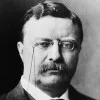CLÉANTE: There’s true and false in piety, as in bravery,
And just as those whose courage shines the most
In battle, are the least inclined to boast,
So those whose hearts are truly pure and lowly
Don’t make a flashy show of being holy.[Il est de faux dévots ainsi que de faux braves:
Et, comme on ne voit pas qu’où l’honneur les conduit
Les vrais braves soient ceux qui font beaucoup de bruit,
Les bons et vrais dévots, qu’on doit suivre à la trace,
Ne sont pas ceux aussi qui font tant de grimace.]Molière (1622-1673) French playwright, actor [stage name for Jean-Baptiste Poquelin]
Tartuffe, or the Hypocrite [Le Tartuffe, ou L’Imposteur], Act 1, sc. 6 (1669) [tr. Wilbur (1963)]
(Source)
(Source (French)). Alternate translations:There are Pretenders to Devotion as well as to Courage. And as we never find the truly Brave to be such as make much Noise wheresoever they are led by Honour, so the Good and truly Pious, who are worthy of our Imitation, are never those that deal much in Grimace.
[tr. Clitandre (1672)]There are hypocrites in religion as well as pretenders to courage; and as we never find the truly brave man make much noise where honour leads him, no more are the good and truly pious, whom we ought to follow, those who make so many grimaces.
[tr. Van Laun (1876)]Devotion, like courage, has its pretenders' and in the same way that the truly brave are not those who make the most noise where honour leads them, so the real and truly pious men whose example we ought to follow, are not those who affect such grimaces.
[tr. Wall (1879)]There are hypocrites in religion as well as pretenders to courage; and as we never find the truly brave to be such as make much noise wherever they are led. by honour, so the good and truly pious, who are worthy of our imitation, are never those who indulge in much show.
[tr. Mathew (1890)]There are pretenders to devotion as to courage; and even as those who are truly brave when honour calls are not those who make the most noise, so the good and truly pious, in whose footsteps we ought to follow, are not thoae who make so many grimaces.
[tr. Waller (1903), sc. 5]There are false heroes -- and false devotees;
And as true heroes never are the ones
Who make much noise about their deeds of honour,
Just so true devotees, whom we should follow,
Are not the ones who make so much vain show.
[tr. Page (1909)]There's false devotion like false bravery.
And as you see upon the field of honor
The really brave are not the noisiest ones,
The truly pious, whom we should imitate,
Are not the ones who show off their devotion.
[tr. Bishop (1957), sc. 5]Like courage, piety has its hypocrites.
Just as we see, where honor beckons most
The truly brave are not the ones who boast;
The truly pious people, even so,
Are not the ones who make the biggest show.
[tr. Frame (1967). sc. 5]If there's false courage, then, God knows,
There is false piety as well:
The brave man you can always tell
By how he doesn't rant and roar
And bluster, in the heat of war.
How may pious men be known?
They don't pull faces, sigh and groan.
[tr. Bolt (2002)]Look: some people pretend to be religious the way others pretend to be brave. We can recognize brave people by what honor has pushed them to do, but the truly pious, whom one should imitate, don't smirk and show off.
[tr. Steiner (2008)]The falsely devout are like the falsely brave;
And as we see that those who make the most noise
Are not the bravest when the moment comes,
So the truly good, the truly devout,
Are not the ones making all this racket about it.
[tr. Campbell (2013)]
Quotations about:
boasting
Note not all quotations have been tagged, so Search may find additional quotes on this topic.
(He and his shadow dance together. He is showing off now. He crows like a cock. He would fly in order to impress WENDY further if he knew that there is anything unusual in that.)
PETER: Wendy, look, look; oh the cleverness of me!
J. M. Barrie (1860-1937) Scottish novelist and dramatist [James Matthew Barrie]
Peter Pan, Act 1 (1904, pub. 1928)
(Source)
In Barrie's 1911 novelization, Peter and Wendy, ch. 3 "Come Away, Come Away!" this is rendered:Alas, he had already forgotten that he owed his bliss to Wendy. He thought he had attached the shadow himself. “How clever I am!” he crowed rapturously, “oh, the cleverness of me!”
There are two motives for reading a book: one, that you enjoy it; the other, that you can boast about it.
Bertrand Russell (1872-1970) English mathematician and philosopher
Conquest of Happiness, Part 1, ch. 3 “Competition” (1930)
(Source)
Can I forget your many favours? Nay.
Why don’t I mention them? Because you do.
If I begin, some one is sure to say
“Your patron told me all he did for you”;
Friend there are tasks cannot be done by two;
Shall this be yours or mine? for I submit
However great a gift, there nothing due
To any giver who shall boast of it.[Quae mihi praestiteris memini semperque tenebo.
Cur igitur taceo, Postume? Tu loqueris.
Incipio quotiens alicui tua dona referre,
Protinus exclamat ‘Dixerat ipse mihi.’
Non belle quaedam faciunt duo: sufficit unus
Huic operi: si vis, ut loquar, ipse tace.
Crede mihi, quamvis ingentia, Postume, dona
Auctoris pereunt garrulitate sui.]Martial (AD c.39-c.103) Spanish Roman poet, satirist, epigrammatist [Marcus Valerius Martialis]
Epigrams [Epigrammata], Book 5, epigram 52 (5.52) (AD 90) [tr. Pott & Wright (1921), “Self-Praise”]
(Source)
"To Postumus." (Source (Latin)). Alternate translations:Thy gifts to me I thinke of, and still shall.
Why then do I not speake of them at all?
Thou dost. Where ere I tell thy charitie,
Tis answer'd straight, himselfe has told it me.
This work befits not both; one is enough;
If thou wouldst have me speake, be silent thou.
For (trust me) wert thou nere so liberall,
The givers talking would destroy it all.
[tr. May (1629), ep. 53]What thou conferr'st on me I do
Remember, and shall think on, too.
Why therefore do I hold my tongue?
Cause, Posthumus, thou ne'er hast done.
As often as I go to treat
of these thy gifts to them I meet,
'T is presently replied, "Forbear,
He whisper'd it into my ear."
Two men some things cannot do well:
One person may suffice to tell,
and do this work: if it may please
That I shall speak, then hold thy peace.
For prithee, Postumus, believe,
Though that thy gifts are great to give
All thanks must perish, and are lost,
When authors their own actions boast.
[tr. Fletcher (1656)]Your favors to me I remember well;
But do not mention them; because you tell.
Whenever I begin, I'm answer'd strait,
"I heard from his own mouth, what you relate."
Two ill become the business of but one;
Be you but silent, I will speak alone.
Great are your gifts; but when proclaim'd around,
The obligation dies upon the sound.
[tr. Hay (1755), ep. 53]The services you have rendered me I do not forget, and will always keep them in my mind. How happens it, Posthumus, that I am silent? It is because you talk. Do I begin to expatiate on your favours, I am told, "I heard all about it from himself." Some things are not handsomely performed by two; one person is enough to relate kindness; if you wish me to speak, you must remain silent. The merit of gifts, however great they be, is lost by the garrulity of the giver.
[tr. Amos (1858), ch. 3, ep. 78; ep. 53]Your services to me I remember, and shall never forget Why then am I silent about them, Postumus? Because you yourself talk of them. Whenever I begin to speak to any one of your favours, he immediately exclaims, "He has told me of them himself." There are certain things which cannot be well done by two people; one is enough in this case. If you wish me to speak, keep silence yourself. Believe me, Postumus, gifts, however great, are deprived of their value by garrulity on the part of the donor.
[tr. Bohn's Classical (1859)]I'm grateful for your favors;
They'll never be forgot.
You wonder why I'm dumb about 'em?
Just because you're not.
Whenever I start telling
Of kindnesses you'd done,
The tale, I find, you'd quite concluded
Long ere I'd begun.
Now two men spoil the business
That one does well alone.
If I 'm desired to open my mouth,
Kindly shut your own.
[tr. Nixon (1911)]Your bounty to me I remember and shall always keep in mind. Why, then, and I silent about it, Postumus? You speak of it. As often as I begin to report to someone your presents, he at once exclaims, "He himself had told me." These are things which two persons do not do nicely: one suffices for this work' if you want me to speak, be you yourself silent. Trust me; gifts, however great, Postumus, lose their value by the chattering of the giver.
[tr. Ker (1919)]Grateful for all your gifts I still shall be;
"Why then be silent?" Well, you speak for me.
If to a friend your kindness I report,
With, "Yes, he told me so" he cuts me short.
Some tasks are not so suitable for two,
So thank you, Postumus, I'll wait for you.
Believe me, gifts, however rich they be,
Lose all their value by loquacity.
[tr. Francis & Tatum (1924), #251]I remember all you have done for me and shall ever keep it in mind. Why then do I say nothing about it, Postumus? You talk. Whenever I start to tell somebody of your generosity, he exclaims at once: "He tole me that himself." Some things are not nicely done by two. One is enough for this work. If you want me to talk, you must hold your tongue. Believe me, Postumus, the most magnificent of gifts are nullified by the garrulity of the giver.
[tr. Shackleton Bailey (1993)]You are my patron, I would give you praise,
But when talk of your virtues I would raise,
I'm told you have already laid them out.
Where I would whisper, you your merits shout.
We must more prudently divide our labor
To have efficient impact on our neighbor.
If I'm to praise you, you must hold your peace,
Or give me from my gratitude release.
Your gifts do not give me the power to do
Promotion constantly undone by you.
You undermine my prized veracity
With puffings of your own loquacity.
[tr. Wills (2007)]I'll always cherish what you’ve done for me.
Why don’t I speak of it? Because you do.
Whenever I tell someone of your bounty,
he cries at once: “He told me of it, too!”
Some things two can’t do well; just one suffices.
You must keep mum, if you want me to gush.
Believe me, Postumus, the greatest gifts
are canceled when the giver just won't hush.
[tr. McLean (2014)]About your gifts I'd love to gush,
Instead, I feel I have to hush.
When I tell people, they don't doubt it:
You've already bragged about it.
Maybe we should coordinate
Who praises your largesse of late.
But gifts do lose their gleam and such
When givers praise themselves too much.
[tr. Hill (2023)]
When a man boasts, it is an indication he holds his listener in higher esteem than he does himself.
Marcelene Cox (1900-1998) American writer, columnist, aphorist
“Ask Any Woman” column, Ladies’ Home Journal (1955-06)
(Source)
You have to be very careful when you give to others that you don’t tell them how great you are rather than how much you value them.
Merle Shain (1935-1989) Canadian journalist and author
When Lovers Are Friends, ch. 9 (1980)
(Source)
You’re rich and young, as all confess,
And none denies your loveliness;
But when we hear your boastful tongue
You’re neither pretty, rich, nor young.[Bella es, novimus, et puella, verum est,
Et dives, quis enim potest negare?
Sed cum te nimium, Fabulla, laudas,
Nec dives neque bella nec puella es.]Martial (AD c.39-c.103) Spanish Roman poet, satirist, epigrammatist [Marcus Valerius Martialis]
Epigrams [Epigrammata], Book 1, epigram 64 (1.64) (AD 85-86) [tr. Pott & Wright (1921), “The Boaster”]
(Source)
"To Fabulla." (Source (Latin)). Alternate translations:Of beautie braue we knowe thou art,
and eke a maide beside:
Abounding eke in wealthe and store,
this ne maie bee denied.
But while to much you praise your self,
and boste you all surmount:
Ne riche, ne faire, Fabulla, nor
A maide we can you counte.
[tr. Kendall (1577)]You're fayre, I know't; and modest too, 't is true;
And rich you are; well, who denyes it you?
But whilst your owne prayse you too much proclame,
Of modest, rich, and fayre you loose the same.
[17th C Manuscript]Faire, rich, and yong? how rare is her perfection,
Were it not mingled with one soule infection?
I meane, so proud a heart, so curst a tongue,
As makes her seeme, nor faire, nor rich, nor yong.
[tr. Harington (fl. c. 1600), ep. 291; Book 4, ep. 37 "Of a faire Shrew"]Th' art faire Fabulla, tis most true,
Rich, yongue, there's none denies thy due.
But whilest thy selfe dost too much boast,
Thy youth, thy wealth, thy beautie's lost.
[tr. May (1629)]Genteel 't is true, O nymph, you are;
You're rich and beauteous to a hair.
But while too much you praise yourself,
You've neither air, nor charms, nor pelf.
[tr. Gent. Mag. (1746)]Pretty thou art, we know; a pretty maid!
A rich one, too, it cannot be gainsay'd.
But when thy puffs we hear, thy pride we see;
Thou neither rich, nor fair, nor maid canst be.
[tr. Elphinston (1782), Book 6, Part 3, ep. 48; Bohn labels this as Anon.]You are pretty, -- we know it; and young, --it is true; and rich, -- who can deny it? But when you praise yourself extravagantly, Fabulla, you appear neither rich, nor pretty, nor young.
[tr. Bohn's Classical (1859)]Fabulla, it's true you're a fair ingénue,
And your wealth is on every one's tongue:
But your loud self-conceit
Makes people you meet
Think you neither fair, wealthy, nor young.
[tr. Nixon (1911), "The Egoist"]You are beautiful, we know, and young, that is true, and rich -- for who can deny it? But while you praise yourself overmuch, Fabulla, you are neither rich, nor beautiful, nor young.
[tr. Ker (1919)]You’re beautiful, oh yes, and young, and rich;
But since you tell us so, you’re just a bitch.
[tr. Humphries (1963)]It's true enough, Fabulla, you are
by you, Fabulla, you aren't rich, or beautiful, or young.
Bovie (1970)]That you're young, beautiful and rich,
Fabulla, no one can deny.
But when you praise yourself too much,
None of the epithets apply.
[tr. Michie (1972)]You're beautiful, oh yes, and young, and rich;
But since you tell us so, you're just a bitch.
[tr. Humphries (<1987)]You are pretty: we know. You are young: true. And rich: who can deny it? But when you praise yourself too much, Fabulla, you are neither rich nor pretty nor young.
[tr. Shackleton Bailey (1993)]You're rich, and young, and beautiful!
It's true, and who can doubt it?
But less and less we feel that pull
The more you talk about it.
[tr. Ericsson (1995)]Of debutantes you are beyond compare --
So wealthy, beautiful, and debonair.
Yet you make all this matter not a whit:
Your beauty to undo -- you boast of it.
[tr. Wills (2007)]You’re lovely, yes, and young, it’s true,
and rich -- who can deny your wealth?
But you aren’t lovely, young or rich,
Fabulla, when you praise yourself.
[tr. McLean (2014)]
Wisdom is by far the greatest part of joy,
and reverence toward the gods must be safeguarded.
The mighty words of the proud are paid in full
with mighty blows of fate, and at long last
those blows will teach us wisdom.[πολλῷ τὸ φρονεῖν εὐδαιμονίας
πρῶτον ὑπάρχει. χρὴ δὲ τά γ᾽ εἰς θεοὺς
μηδὲν ἀσεπτεῖν. μεγάλοι δὲ λόγοι
μεγάλας πληγὰς τῶν ὑπεραύχων
ἀποτίσαντες
γήρᾳ τὸ φρονεῖν ἐδίδαξαν.]Sophocles (496-406 BC) Greek tragic playwright
Antigone, l. 1348ff [Chorus] (441 BC) [tr. Fagles (1982), l. 1466ff]
(Source)
Final lines of the play. Original Greek. Alternate translations:Wisdom is first of the gifts of good fortune:
'Tis a duty, to be sure, the rites of the Gods
Duly to honor: but words without measure, the
Fruit of vain-glory, in woes without number their
Recompense finding,
Have lesson'd the agéd in wisdom.
[tr. Donaldson (1848)]Of happiness the chiefest part
Is a wise heart:
And to defraud the gods in aught
With peril's fraught.
Swelling words of high-flown might
Mightily the gods do smite.
Chastisement for errors past
Wisdom brings to age at last.
[tr. Storr (1859)]Wise conduct hath command of happiness
Before all else, and piety to Heaven
Must be preserved. High boastings of the proud
Bring sorrow to the height to punish pride: --
A lesson men shall learn when they are old.
[tr. Campbell (1873)]Wisdom is provided as the chief part of happiness, and our dealings with the gods must be in no way unholy. The great words of arrogant men have to make repayment with great blows, and in old age teach wisdom.
[tr. Jebb (1891)]Wisdom alone is man's true happiness.
We are not to dispute the will of heaven;
For ever are the boastings of the proud
By the just gods repaid, and man at last
Is taught to fear their anger and be wise.
[tr. Werner (1892)]Wisdom is the supreme part of happiness; and reverence towards the gods must be inviolate. Great words of prideful men are ever punished with great blows, and, in old age, teach the chastened to be wise.
[tr. Jebb (1917)]There is no happiness where there is no wisdom;
No wisdom but in submission to the gods.
Big words are always punished
And proud men in old age learn to be wise.
[tr. Fitts/Fitzgerald (1939), l. 1039ff]Of happiness the crown
And chiefest part
Is wisdom, and to hold
The gods in awe.
This is the law
That, seeing the stricken heart
Of pride brought down,
We learn when we are old.
[tr. Watling (1947), Exodos, l. 1027ff]Our happiness depends
on wisdom all the way.
The gods must have their due.
Great words by men of pride
bring greater blows upon them.
So wisdom comes to the old.
[tr. Wyckoff (1954)]Of happiness, far the greatest part is wisdom,
and reverence towards the gods.
Proud words of arrogant man, in the end,
Meet punishment, great as his pride was great,
Till at last he is schooled in wisdom.
[tr. Kitto (1962)]Wisdom is supreme for a blessed life,
And reference for the gods
Must never cease. Great words, sprung from arrogance.
Are punished by great blows.
So it is one learns, in old age, to be wise.
[tr. Woodruff (2001)]By far is having sense the first part
of happiness. One must not act impiously toward
what pertains to gods. Big words
of boasting men,
paid for by big blows,
teach having sense in old age.
[tr. Tyrell/Bennett (2002)]The most important thing in man’s happiness is good judgement and he must not treat with disdain the works of the gods.
The arrogant pay for their big proud words with great downfalls and it’s only then, in their old age that they gain wisdom!
[tr. Theodoridis (2004)]The most important part of true success
is wisdom -- not to act impiously
towards the gods, for boasts of arrogant men
bring on great blows of punishment --
so in old age men can discover wisdom.
[tr. Johnston (2005)]Knowledge truly is by far the most important part of happiness, but one must neglect nothing that the gods demand. Great words of the over-proud balanced by great falls taught us knowledge in our old age.
[tr. Thomas (2005)]
In artful boasting, one states all the information necessary to impress people, but keeps the facts decently clothed in the language of humility. Useful approaches include Disbelief, Fear and Manic Elation. For some reason, these are considered to be more attractive human emotions than justifiable pride or self-satisfaction. Probably because they are not as much fun.
Even a stopped clock is right twice every day. After some years, it can boast of a long series of successes.
[Die still stehende Uhr, die täglich zwei Mal die richtige Zeit angezeigt hat, blickt nach Jahren auf eine lange Reihe von Erfolgen zurück.]
The less you speak of your greatness, the more I will think of it.
Francis Bacon (1561-1626) English philosopher, scientist, author, statesman
Remark to Sir Edward Coke
(Source)
Quoted in Joseph Sortain, The Life of Francis, Lord Bacon (1851).
Nothing is more deceitful than the appearance of humility. It is often only carelessness of opinion, and sometimes an indirect boast.
Bragging is not merely designed to impress. Bragging is designed to produce envy and assert superiority. It is, therefore, an act of hostility. Bragging is also a transparent ploy. It reveals your lack of self-confidence. “I am not enough,” you feel. So you resort to showering me with your “achievements,” in order to mask your perceived deficiencies.
Aaron Hass (contemp.) American clinical psychiatrist, academic, author
Doing the Right Thing: Cultivating Your Moral Intelligence, Sec. 1, ch. 7 “Self-Control” (1998)
(Source)
The man who has nothing to boast of but his illustrious ancestry, is somewhat like a potatoe, the only good thing is under ground.
Thomas Overbury (1581-1613) English poet
Characters (1612)
(Source)
Referenced in John Ireland, Letters and Poems by the Late Mr. John Henderson (1786).Variant: "The man who has not anything to boast of but his illustrious ancestors, is like a potatoe, the only good belonging to him is under ground." -- The Lady's Monthly Museum (June 1807).
Whoo-oop! I’m the old original iron-jawed, brass-mounted, copper-bellied corpse-maker from the wilds of Arkansaw. — Look at me! I’m the man they call Sudden Death & General Desolation! Sired by a hurricane, dam’d by an earthquake, half-brother to the cholera, nearly related to the small-pox on the mother’s side! Look at me! I take nineteen alligators and a bar’l of whiskey for breakfast when I’m in robust health, and a bushel of rattlesnakes and a dead body when I’m ailing! I split the everlasting rocks with my glance, and I squench the thunder when I speak! Whoo-oop! Stand back and give me room according to my strength! Blood’s my natural drink, and the wails of the dying is music to my ear! Cast your eye on me, gentlemen! — and lay low and hold your breath, for I’m bout to turn myself loose!
This sad little lizard told me that he was a Brontosaurus on his mother’s side. I did not laugh; people who boast of ancestry often have little else to sustain them. Humoring them costs nothing and adds to happiness in a world in which happiness is in short supply.
Do not let the wise boast in their wisdom; do not let the mighty boast in their might; do not let the wealthy boast in their wealth; but let those who boast boast in this, that they understand and know me, that I am the Lord; I act with steadfast love, justice, and righteousness in the earth, for in these things I delight, says the Lord.
The Bible (The Old Testament) (14th - 2nd C BC) Judeo-Christian sacred scripture [Tanakh, Hebrew Bible], incl. the Apocrypha (Deuterocanonicals)
Jeremiah 9:23-24 [NRSV (1989 ed.)]
(Source)
Alternate translations:Let not the wise man glory in his wisdom, neither let the mighty man glory in his might, let not the rich man glory in his riches: But let him that glorieth glory in this, that he understandeth and knoweth me, that I am the Lord which exercise lovingkindness, judgment, and righteousness, in the earth: for in these things I delight, saith the Lord.
[KJV (1611)]Let the sage boast no more of his wisdom, nor the valiant of his valour, nor the rich man of his riches! But if anyone wants to boast, let him boast of this: of understanding and knowing me. For I am Yahweh, I rule with kindness, justice and integrity on earth; yes, these are what please me -- it is Yahweh who speaks.
[JB (1966), 9:22-23]The wise should not boast of their wisdom,
nor the strong of their strength,
nor the rich of their wealth.
If any want to boast,
they should boast that they know and understand me,
because my love is constant,
and I do what is just and right.
These are the things that please me.
I, the Lord, have spoken.
[GNT (1976)]"Let the sage not boast of wisdom, nor the valiant of valour, nor the wealthy of riches! But let anyone who wants to boast, boast of this: of understanding and knowing me. For I am Yahweh, who acts with faithful love, justice, and uprightness on earth; yes, these are what please me," Yahweh declares.
[NJB (1985), 9:22-23]Let not the wise glory in their wisdom;
Let not the strong glory in their strength;
Let not the rich glory in their riches.
But only in this should one glory:
In being earnestly devoted to Me.
For I GOD act with kindness,
Justice, and equity in the world;
For in these I delight
-- declares GOD.
[RJPS (2023 ed.), 9:22-23]
I have always been fond of the West African proverb “Speak softly and carry a big stick; you will go far.”
Theodore Roosevelt (1858-1919) American politician, statesman, conservationist, writer, US President (1901-1909)
Letter (1900-01-26) to Henry L. Sprague
(Source)
The letter to Sprague is is the first known use by Roosevelt of his future catch phrase. It attained more fame when he used it in a speech at the Minnesota State Fair (1901-09-02) (two versions found):There is a homely adage which runs "Speak softly and carry a big stick; you will go far." If the American nation will speak softly and yet build and keep at a pitch of highest training a thoroughly efficient Navy, the Monroe Doctrine will go far.
[Speech (1901-09-02), "A Nation of Pioneers," Minnesota State Fair, Minneapolis]A good many of you are probably acquainted with the old proverb "Speak softly and carry a big stick -- you will go far."
[Minneapolis Tribune (1901-09-03)]
Other significant references:Right here let me make as vigorous a plea as I know how in favor of saying nothing that we do not mean, and of acting without hesitation up to whatever we say. A good many of you are probably acquainted with the old proverb, 'Speak softly and carry a big stick -- you will go far.' If a man continually blusters, if he lacks civility, a big stick will not save him from trouble, and neither will speaking softly avail, if back of the softness there does not lie strength, power.
[Speech (1903-04-02), Chicago]One the main lessons to learn from this war is embodied in the homely proverb: "Speak softly and carry a big stick."
[America and the World War, ch. 2 "The Belgian Tragedy" (1915)]The only safe rule [in foreign policy] is to promise little, and faithfully keep to every promise; to "speak softly and carry a big stick."
[Theodore Roosevelt: An Autobiography, ch. 15 "The Peace of Righteousness" (1913)]
More discussion here:
A strong nation, like a strong person, can afford to be gentle, firm, thoughtful, and restrained. It can afford to extend a helping hand to others. It’s a weak nation, like a weak person, that must behave with bluster and boasting and rashness and other signs of insecurity.
Jimmy Carter (b. 1924) American politician, US President (1977-1981), Nobel laureate [James Earl Carter, Jr.]
“Warm Hearts and Cool Heads,” speech, Liberal Party dinner, New York City (14 Oct 1976)
(Source)
The title of the speech was from a phrase coined by Adlai Stevenson.
The vanity of being trusted with a secret is generally one of the chief motives to disclose it; for however absurd it may be thought to boast an honor by an act with shows that it was conferred without merit, yet most men seem rather inclined to confess the want of virtue than of importance, and more willingly show their influence, though at the expense of their probity, than glide through life with no other pleasure than the private consciousness of fidelity; which, while it is preserved, must be without praise, except from the single person who tries and knows it.
Samuel Johnson (1709-1784) English writer, lexicographer, critic
The Rambler, #13 (1 May 1750)
(Source)























